Related Research Articles
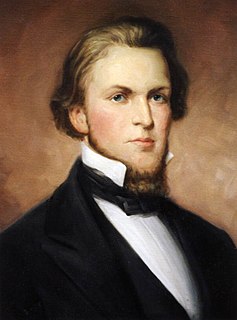
Augustus Emmet Maxwell was an American lawyer and politician. Maxwell served in a number of political positions in the State of Florida including as one of Florida's Senators to the Confederate States Congress, Florida Secretary of State, and as Chief Justice of the Florida Supreme Court.

The Constitution of the State of Florida is the document that establishes and describes the powers, duties, structure, and function of the government of the U.S. state of Florida, and establishes the basic law of the state. The current Constitution of Florida was ratified on November 5, 1968.
State ratifying conventions are one of the two methods established by Article V of the United States Constitution for ratifying proposed constitutional amendments. The only amendment that has been ratified through this method thus far is the 21st Amendment in 1933.
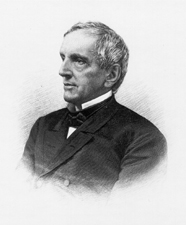
Julius Rockwell was a United States politician from Massachusetts, and the father of Francis Williams Rockwell.
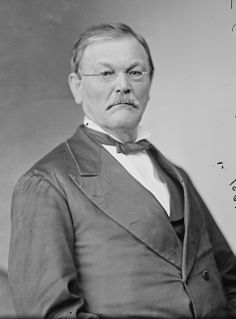
James Kerr Kelly was an American politician born in Pennsylvania. He was a United States Senator for Oregon from 1871 to 1877, and later Chief Justice of the Oregon Supreme Court. Prior to his election to the Senate he had been elected to both houses of the local legislature, serving in the Territorial House and State Senate, and was a member of the Oregon Constitutional Convention in 1857.
The Massachusetts Constitutional Convention of 1853 met from May 4 to August 2 in order to consider changes to the Massachusetts Constitution. This was the third such convention in Massachusetts history, following the original constitutional convention, in 1779–80 and the second, in 1820–21, which resulted in the adoption of the first nine amendments.
William Hebard was an American attorney and politician from Vermont. He served in several elected offices, and was most notable for representing Vermont in the United States House of Representatives for two terms (1849-1853).
Burgess Sidney Gaither was a prominent North Carolina politician and attorney who served in the Confederate States Congress during the American Civil War.

Thomas Baltzell was an American lawyer and politician who was the first popularly elected chief justice of the Florida Supreme Court. Baltzell was also a Florida Territory Senator and a Florida State Representative as well as a Florida Constitutional Convention delegate for two of the state's Constitutions.

The Constitution of Indiana is the highest body of state law in the U.S. state of Indiana. It establishes the structure and function of the state and is based on the principles of federalism and Jacksonian democracy. Indiana's constitution is subordinate only to the U.S. Constitution and federal law. Prior to the enactment of Indiana's first state constitution and achievement of statehood in 1816, the Indiana Territory was governed by territorial law. The state's first constitution was created in 1816, after the U.S. Congress had agreed to grant statehood to the former Indiana Territory. The present-day document, which went into effect on November 1, 1851, is the state's second constitution. It supersedes Indiana's 1816 constitution and has had numerous amendments since its initial adoption.

Joseph Bradford Lancaster was an American lawyer and Whig politician who served on the Florida Supreme Court from 1848 to 1850. An important figure in Florida law and politics, he was the last justice under the system in which the circuit court judges served also on the supreme court and served as Mayor of Jacksonville, Florida from 1846–1847 and as the first Mayor of Tampa, Florida in 1856.
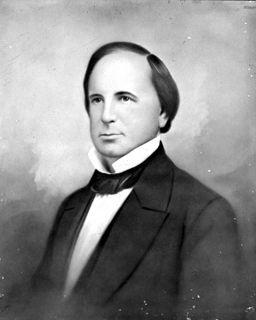
Walker Anderson was a Florida lawyer and Democratic politician who served on the Florida Supreme Court from 1851 to 1853.
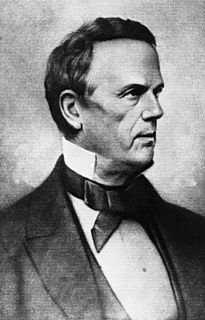
Benjamin Drake Wright was a Florida lawyer, journalist, and Whig politician who served in Territorial Legislature, the State Senate, and as a Florida Supreme Court justice in 1853, succeeding Walker Anderson. He was born in Wilkes-Barre, Pennsylvania on January 23, 1799, the son of William and Sarah Ann Wright. He married Josephine De La Rua on February 23, 1826. He owned the Pensacola Gazette from 1834 to 1839 and edited the paper till 1846. He opposed secession and refused to swear allegiance to the Confederacy. He died on April 28, 1874.
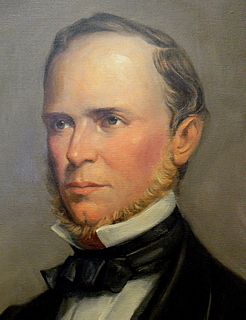
Charles Henry DuPont was a Florida lawyer, planter, businessman, and Democratic politician who served as a Florida Supreme Court justice from 1854 to 1868. He was Chief Justice from 1860 to 1868.
Bird Murphy Pearson was a Florida lawyer, planter and a Democratic politician who served on the Florida Supreme Court from 1856 to 1859, one of the first to be popularly elected. He replaced Thomas Baltzell as Chief Justice. He was born in 1803. He died October 9, 1859.
William Augustus Forward was a Florida lawyer, planter and Democratic politician who served on the Florida Supreme Court from 1860 to 1865. Forward was born in New York in 1812. He was a cousin of Walker Forward, Treasury Secretary to William Henry Harrison. Though his father had fought in the War of 1812, circa 1816 the family moved to Canada. While in Canada, he studied law, but was banished from Canada for participating in the Rebellions of 1837. He then returned to New York. He was befriended by Congressman Isaac H. Bronson, and moved to Florida at his behest.

Edwin M. Randall was a Florida lawyer and Republican politician who served as Chief Justice of the Florida Supreme Court from January 1869 to January 7, 1885. He was born April 5, 1822. He died July 12, 1895.
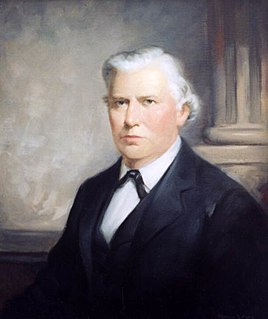
Leslie Atchinson Thompson was a lawyer, author of works on legal subjects, politician, and judge. He was city clerk, treasurer, and mayor of Tallahassee. He also served as an associate justice of the Supreme Court of Florida from 1851 to 1853.

David Porter Hogue, also known as D. P. Hogue, was an American reporter and politician from the state of Florida. Hogue most notably served as the 4th Florida Attorney General from 1848 until 1853. He also served various terms as Mayor of Tallahassee.
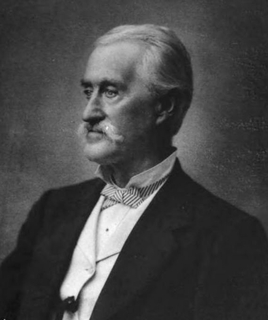
Alexander Lynn Collins was an American lawyer, judge, and politician. He was an important leader of the Whig Party in the early years of Wisconsin, serving as party chairman, nominee for United States Congress, for United States Senate, and for Governor of Wisconsin. He also served as a Wisconsin Circuit Court Judge and a member of the University of Wisconsin Board of Regents. In historical documents, his middle name is sometimes spelled "Linn" and he is sometimes referred to as "A. L. Collins."
References
- Manley, Walter W., Brown, E. Canter. and Rise, Eric W. The Supreme Court of Florida and Its Predecessor Courts, 1821-1917. pp 145 – 146. University Press of Florida. Gainesville, Florida. 1997. eBook ISBN 978-0-8130-2298-7. ISBN 978-0-8130-1540-8. at Netlbrary. Online. April 23, 2008.
- The Political Graveyard